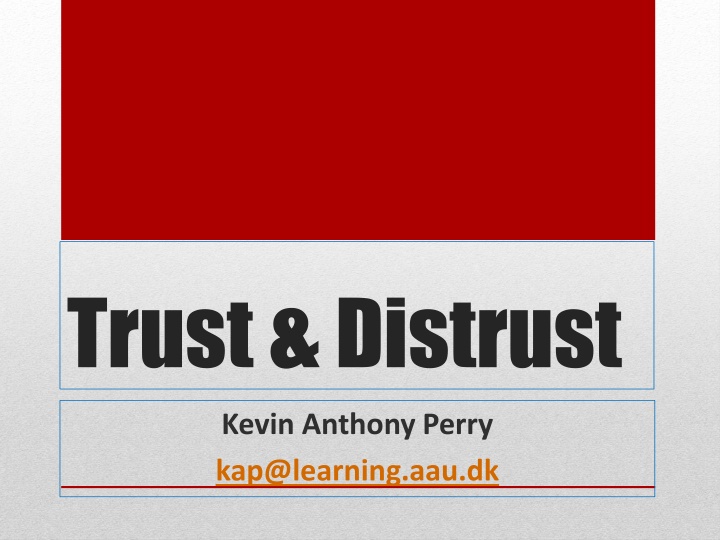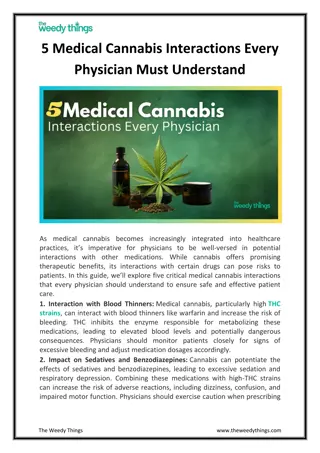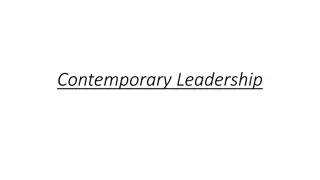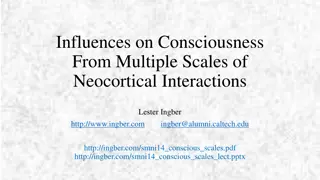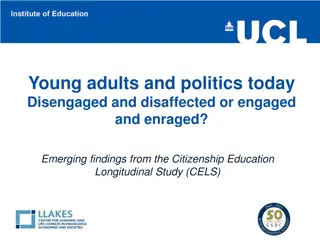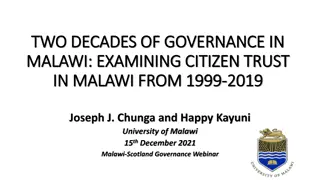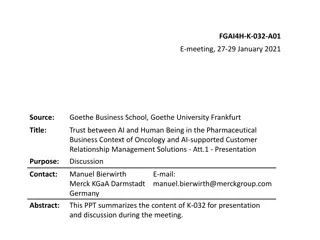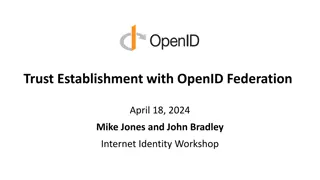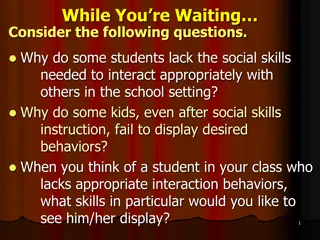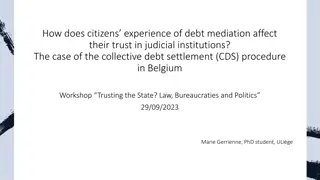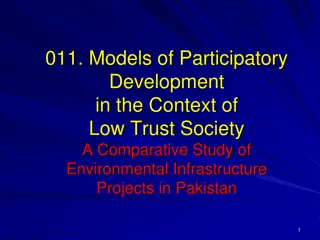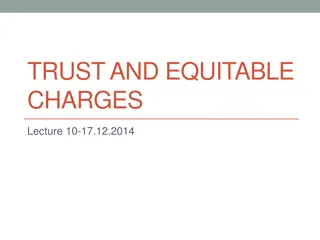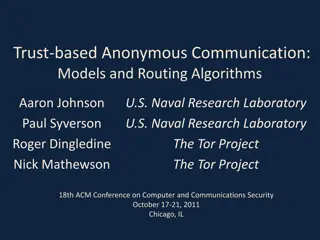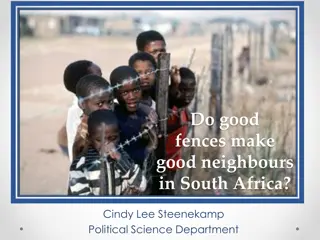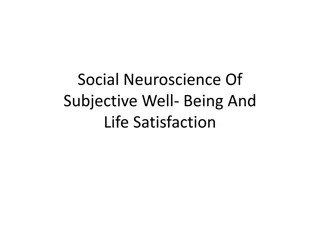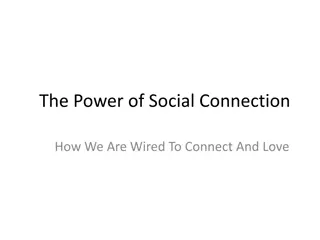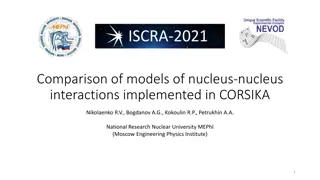Exploring Trust and Distrust in Social Interactions
Understanding the dynamics of trust and distrust within social interactions is vital for successful service delivery and relationship-building, especially in youth work settings. This case study highlights the complexities of gaining trust, the significance of trusting relationships, and the cultural frames that influence interactions. Trust interweaves the entire fieldwork experience, emphasizing the importance of establishing and maintaining trust for meaningful insights.
Download Presentation

Please find below an Image/Link to download the presentation.
The content on the website is provided AS IS for your information and personal use only. It may not be sold, licensed, or shared on other websites without obtaining consent from the author.If you encounter any issues during the download, it is possible that the publisher has removed the file from their server.
You are allowed to download the files provided on this website for personal or commercial use, subject to the condition that they are used lawfully. All files are the property of their respective owners.
The content on the website is provided AS IS for your information and personal use only. It may not be sold, licensed, or shared on other websites without obtaining consent from the author.
E N D
Presentation Transcript
Trust & Distrust Kevin Anthony Perry kap@learning.aau.dk
Case study not a representative survey. Can only give a glimpse of what was happening between those social actors, at that period, in that context based on a history of social interaction. Cannot make any grand generalisations based on a single fieldwork study Limitations
Can be indicative of what may be occurring between other public sector employees and young men with minority ethnic backgrounds in similar contexts Especially where employees use similar methods to those presented in the book Indicative
Relationships between a group of young men with diverse minority ethnic backgrounds, a team of Youth Club Workers, a job consultant and a police officer. Provides backstage interpretative insights about the relationships from both the perspectives of the employees & the young men Gives an in-depth analysis of entering & conducting fieldwork as a researcher Trust & distrust as cultural frames (resources) Book closely explores
To engaging in reactive and successful service delivery (Hoggarth & Smith, 2004; Davies, 2010). To building rapport and trusting relationships & essential to successful outreach and detached youth work (International Network of Street Social Workers, 2009; Andersson, 2011). Trust and trusting relationships are a must for young people to acquire the courage to try new activities, develop new relationships and seek & accept support (Davies & Merton, 2009). Youth workers must win the trust of Y.P. before they can access the backstage areas of their lives & then implement successful service delivery (Perry, 2012). Trust crucial to youth work
Trust interweaves the whole fieldwork experience together Gaining and maintaining access to the setting & accessing backstage areas of the lived experiences of people In order to see people off their guard, you must first win their trust (Goffman, 1953:05). Strong emphasis on establishing trust both in text books and articles; but distinct gap about how to initiate trust building processes Trust matters to research
Talk to one of the people sitting closest to you and discuss the following (6 mins): What does trust mean to you? How do you decide who to trust? Trust & Distrust ?
Trust is a psychological state comprising the intention to accept vulnerability based upon positive expectations of the intentions or behaviour of another (Rousseau et al., 1998:395). Influential Definition mental state
Static view of trust (or trusting) Excludes agency Excludes the process perspective of trust Conceptualises trust and distrust at the opposite ends of the same continuum. Questionable Definition
Trust & distrust as cultural frames
Framing (applying frames) can be understood as a concept used to describe the mechanism by which we make sense of & organise the world. Frames reflect: norms , values, culture and preconceived ideas of social groups and act as frames of reference Framing helps us to understand and explain the situation or to figure out: what is it that s going on here (Goffman, 1974:08). Frames determine how we define and deal with situations & people (provide strategies of action). Frames Framing
A toolbox of habits, skills, and styles including distrust & trust. D & T = conscious decisions made by actors as strategies of action. Actors use tools (resources) to tackle different situations D & T = primary frames used to define others and relationships Actors can expand their toolbox through experience & learning (e.g. the cop) Implies that culture provides
Trust = Confident positive expectations (Lewicki et al. 1998:439) Distrust = Confident negative expectations (ibid). Many sides or dimensions to trust e.g. calculus-based, knowledge-based or identification-based. Social actors use the different sides of trust and distrust to frame individuals and social relations within the context. T & D not static = dynamic mechanisms; tools with a repertoire of variations used by actors as and when required to fit the context. Definitions
Trust & distrust develop over time in the local context through a history of interaction between knowledgeable actors Standpoint
Calculus-based (initial/early phases of new relationships) Knowledge-based (knowing the other well enough to be able to 'predict' their future actions) Identity-based or strong-trust (deep knowledge and understanding of the other & allows one agent to substitute for the other in interpersonal transactions) Implies a process perspective e.g.
Social unrest, vandalism, graffiti & arson Disadvantaged stigmatised areas Negative media and political attention Target of L.A. s integration project Main goal crime prevention with minority ethnic boys and young men Suspicious milieu with distrust of outsiders requires effort to build and maintain trust Trust imperative to reach backstage areas Common features
Nine months of ethnographic fieldwork: Observation (shadowing employees) Participant observation in key sites (including collecting relevant documents) Interviews (ethnographic and semi-structured) DVR Fieldnotes Research diary (transcribed in thick description (Geertz 1973) Approach to Data Collection
Practices & methods involved to obtain input about improving and developing services. Identify, record and map out face-to-face practices & bottom-up-feeding of data Lack of service-user involvement = data dilemma Suspicion and distrust = distance & back turning Original aim of research
The relationships between some of the young men with minority ethnic backgrounds, a team of youth workers, a job consultant and a cop caught my attention. Young men framed the youth workers in distrust and their relationships as distrusting Young men framed the job consultant & cop in variations of trust and relationships as trusting. Curious to understand what was going on Perplexing situation
Why young men with minority ethnic backgrounds distrust some public sector employees and trust others Focus Became
Where are you from? Are you Jewish? Are you going to live here? Are you going to work here? What are you doing here? Do you have a car? Are you gay? Do you like women? Do you have a girlfriend? Are you married? How many children do you have? How old are you? Where do you live? Which football team do you support ? [Research Diary, Oct. 2009]. Mutual Investigation
Luhmann (1979); to start the trust building process: People must participate in social life and reveal themselves Allows the opportunity to learn and test the other Remaining aloof is counterproductive to trusting Perhaps this sheds light on the happenings at the apartment that evening where those present got the chance to test me Thus to initiate the trust building process researchers/social workers must participate and present who they are and what they stand for Fieldwork Reflections
Take you for example Kevin, when you first started coming here we didn t trust you, we didn t know you, you could have been anyone ... can you remember when we had been playing pool for a while you asked me if I wanted to talk one day and you gave me your visit card ? Well, we have been checking you out from the start ... checking your reactions ... seeing how you react to stuff that we talk about ... ha ha (laughs) when you gave me your visit card I checked you out on the net and could see that you are who you say you are ... ... that's how I know that you are ok [Research diary: April 2010]. Backstage revelation
The Super Snitch Patrol, the Cop and the Job Consultant Case Study
[Oh but [Sunset Boulevard] ... its much worse there than here, they are crazy over there ... [laugh] ... did you know they call the SSP workers the Super Snitch Patrol [Stikker] ? (Source: Fieldwork Research Diary, October, 2009). Reputation travels
Which local authority employees are you looking at? (Kazim) My aim is to observe social workers, SSP workers and others who work with young people (KP) SSP [raised voice emphasis on the P] . . . we only ever see them around here together with the police when there s trouble (Asad). SSP workers ... we hate them (Kazim) Can you tell me why you hate SSP workers ? (KP) They spy for the police ... ... and they are grumpy [sur] (Kazim) Yeah we call them the Super Snitch Patrol (Asad) They spy for the police ... ... well apart from [Adem] he is ok (Kazim) Can you give me an example (K) Distrust Framing
They are really bossy and impolite ... I used to go to the youth club over there ... [name of institution] ... the adults there are not nice ... they are unjust and they talk down to you ... it s like you shouldn t be there (Kazim) One of my friends was in trouble, so I asked [name] for some advice ... a couple of days later the police came to my house to ask questions ... I told them nothing ... ... anyway my friend got arrested ... [name] went behind my back to the police, that made me feel really bad ... ... I lost all confidence in [name] [(s)he] is a snitch and I want nothing more to do with [him/her] (Asad) Distrust Framing
While these accounts cannot be verified, they are in tune with other accounts given by young men in the area. Especially in relation to framing the performance of employees. There is a confirming consistency between the data presented by the young men and that presented by some of the youth workers. Not verifiable
Street work patrolling public places where YP gather (shopping centre, library, town centre, concerts, school football tournaments & discotheques) & responding to requests for assistance from the police/fire service [everywhere but where they were supposed to be]. Emergency Service Escort Drive by/through patrolling of Sunset Boulevard Social policing (e.g. pub patrols) Intelligence gathering (in public spaces e.g. demonstration) Information service to the police (open all hours) Naming & Shaming ( deviant youths to avoid) Examples of Practice
We are neither police officers or anything else, we are pedagogues and our tool is having the gift of the gab ... that s talking ... Errmm, for example there have been a lot of container fires in [Sunset Boulevard] and stones thrown at the fire brigade & the police ... so we have a deal that if there is a fire alarm the fire brigade phone us AND its pissing funny when we drive down there, it s a joke ... the fire brigade are parked behind the police at the entrance of [Sunset Boulevard] ... waiting for us ... then us pedagogues come chuffing along in our old car and drive in first and talk to the youths, then the police & fire brigade can follow us in and then take care of their jobs (Interview: Margret ). One example
... ermmm ... I am employed by the local authority ... and sometimes I have to report some things they do not agree with ... errrr some things they don t want me to go further with ... it can be in connection with the SSP cooperation with the police ... I talk to the police... they are my partners [samarbejdspartner] ... and I don t cover for them ... if I know that the youths have committed crime and the police ask I don t lie or try to conceal any crime ... I would never dream of doing that (Interview: Margret ). Another example
Employees involved in SSP cooperation can only disclose information that can prevent crime, and not information about already committed crime If lge retsplejelovens paragraf 115 stk. 2, som er den lovgivning SSP-medarbejdere er underlagt, m SSP- medarbejdere ikke videregive oplysninger om beg et kriminalitet. Her hedder det: Oplysningerne m i forbindelse med det kriminalitetsforebyggende samarbejde ikke videregives med henblik p efterforskning af straffesager (Retsplejeloven 115 stk. 2). Contrary to Retsplejeloven 115 stk. 2
its true ... we only ever go into [S.B.] when theres a fire ... we don t go there otherwise ... they are irritated with us [ ] that means we can t approach them, we only drive over there when the police turn out ... and that s wrong, we should go over there in other ways too [...] we have to rebuild trust [...] they don t come here (Y.C.) anymore because they don t trust us ... we will have to work over there (S.B.) that s just the way it is [...] in the old days we could walk over there and talk about anything [...] and it s completely true, we are not policemen and we shouldn t stand with the police when we are over there and that s what we do (Interview: Bente). Practice reflection
Well ... if you want to hear my honest opinion, the police are not good at sorting them out, ... they always say it s about resources, if it was up to me, they should make a visitation zone ... errrrrr so they are not allowed to hang out in groups ... and every time they do, they should be arrested [...] they would soon get tired of that ... every time they do something they should be arrested ... otherwise nothing happens down there [ ] one of them was arrested down there with a kilo of hash, he got arrested but was out within two hours ... it s just a waste of time [ ] I can t see the difference between Christiania and out here ... well we should have double the amount of police out here (Interview: Dave). Attitude example
And the [police] officers say themselves ... because the other day when I was out on Saturday ... so I said to [police officer] why don t you take a big van drive it down to the newsagents and take all the shit, put them into the van and drive all the shit out of there [i.e. drive all the young people away] nothing much would happen (Interview: Bente). Attitude example
Approach, attitude and actions are crucial its about what you do and how you do it. Your actions strongly influence how young people frame you if they say you are a snitch, then you are a snitch! Your approach, attitude and actions make your reputation (and often the rest of your team). Determine whether relationships develop into distrusting or trusting Has consequences for the success or failure of service delivery Approach, Attitude & Actions
Snitching Unjust Social or collective action Injustice Unfairness Powerful Triggers that construct distrust frames Cultural Tools to frame distrust
Except him! Expressed strong dislike & distrust of the police One cop was ok Ok means acceptance and trusted in certain situations All police are bastards!
Knowledgeable thinks beyond cultural resources Expanded his cultural toolbox Effective use of I.M. (given/given off communication) Aware of and in control of verbal and nonverbal communication to citizens. Approach to citizens: calm and composed, a deliberate strategy to disarm irate citizens Thinks beyond the prescribed role of a cop Frames the young men as citizens as opposed to troublemakers The Fair Cop
Just Justice Trust/trusting/trustworthiness Fair Fairness Triggers Cultural Tools to frame Trust
YWs modus operandi and attitude towards the young men is decisive in framing them. The same is evident about the cop & the job consultant Shows that trust is available And cultural frames can be negotiated to achieve and maintain trust Can be achieved by thinking outside of, or by expanding your cultural toolbox. If the aim is to create and maintain trust, it is necessary for youth workers to communicate and signal trustworthiness to their target group. Overall analysis reveals
YM use distrust as a strategy towards the YWs Grounded in YW s attitude and framing & modus Operandi (methods of operation) For similar Reasons; adapted trust as a strategy towards the job consultant & the cop. D & T can be understood as cultural frames/resources, used as strategies in the environment to respond to unfolding events and frame relationships with others. Conclusion
Remember, trust (& distrust) is an ongoing process, requires effort and takes place over time, through a process of face-to-face interaction Spend time in the context ... Learn about the social codes at play and the tools used to frame individuals and relationships in terms of trusting and distrusting Make strategies to negotiate cultural frames Critically reflect over own (and colleagues) attitude, framing and approach towards the target group Critically reflect over modus operandi and how this overall performance might impact on perceptions of trustworthiness Recommendations
Honest, non-judgemental, inclusive approach Keep your word Convey a confirming consistency via given and given off communication Be visible and participate in community activities Give people the opportunity to check you out and evaluate your trustworthiness Be clear about your role and use time explaining the rules of engagement (e.g. the duty to report & confidentiality). Drop activities that can be interpreted as distrustful Imagine being in their shoes (user-perspective) Be creative & think beyond your role & outside of the box Some recommendations
Politicians/Leaders/Managers need to understand outreach or street work and what that entails Leaders must provide staff with regular qualified supervision & training Decide upon a strategy and a role for employees who undertake outreach work If the aim is to build & maintain trust then consider carefully the modus operandi since some methods are counterproductive to trust. Some more
perry@ruc.dk kap@learning.aau.dk Tel.: 24221354 Thanks for your time!
Trust and distrust as cultural and social repertoires or resources used by actors in social encounters to frame and key social relations frame being an institutionalised resource Denotes the Ping-Pong effect between culture & actor! Definition
Primarily Goffmans (1974) Frame Analysis in combination with literature on Trust & Distrust Theoretical framework best described as pragmatic: Sociology Anthropology Social & Youth Work Policy sciences Business & Organisational Studies Data Analysis
